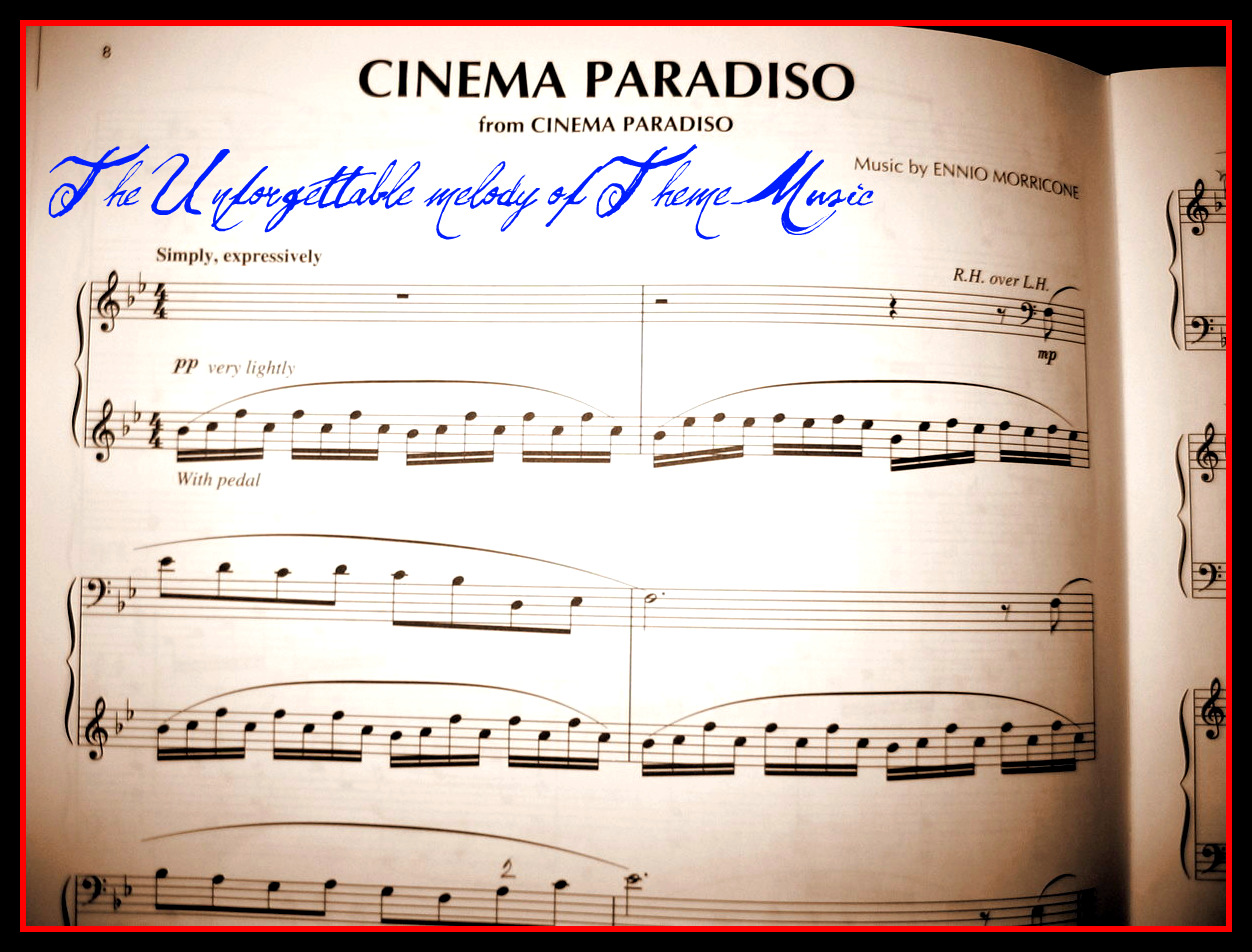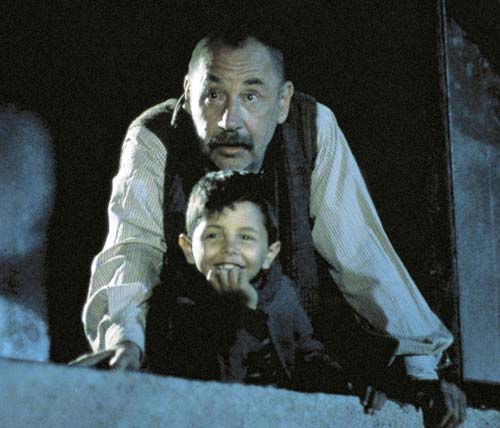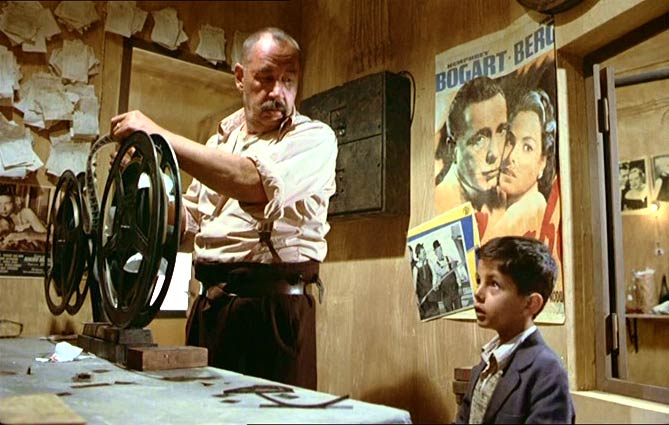
Last night, I shed a million tears watching the “Nuovo Cinema Paradiso”.
I watched the movie at home and enjoyed it dearly. Somewhere in me, I wish I could have seen it on the big screen when it first came out, and someday, I intent to watch it in a threatre keen on re-playing the classics of our time.
How is it that I do not even remember the movie being in Italiano, a language I adore but do not yet understand? I must have been reading the subtitles to follow along. Nonetheless, I could not have been more connected to this story if it were happening in my own living room. But it happens far away, in a small Sicilian village many moons ago. In a world where luck and fortune have not set foot to bless a small Italian boy, he finds solace and curiosity and escape from reality in cinema.

The story of the little Toto, told from the perspective of the grown and successful Salvatore as he recalls his own childhood, is a bewitching tale of every human emotion imaginable – sorrow, bliss, laughter, compassion, rage, desperation and loss, teaching, learning, dreaming and hoping. The directors captivate each intangible in its most perfect essence. Cinema Paradiso is an unforgettable experience which leaves you forever changed. I will never forget the scenes of this movie, and the subtle melancholy it stirred up deep in my soul. The main theme song by the fabulous Ennio Morricone, the sweet slow longing sound of violin and cello, no doubt will play in my ears forever.
Alfredo plays the role of a tough mentor, a demanding supervisor, and a loving father figure to little Toto all in one as he starts to work in Cinema Paradiso in Alfredo’s film “box”. Worlds and years apart, they are inseparable as one another’s companion through the beautiful shared passion of films. A major effort goes into censoring any form of intimacy or passion from the movies, to abide by Italian government regulations. They strip out every clip of rapture from the films, robbing the audience of small pleasures and large hope in a life otherwise gloomy as the bleak wintry skies. I derived some joy from watching Alfredo secretly holding on these clips of , for they are moments too good to part with. Nonetheless, the duo live to please audiences who come to Cinema Paradiso in masses to escape their grim reality for a little while and to watch the featured black and white movie of the day over and over.
In the gloomy post-WWII days of Sicily, Cinema Paradiso brings joy to the empty lives and longing hearts. The films are far more than entertainment; they represent a shadow of hope and passing joy, masked in black and white scenery, delivered in beautiful dialogue, on the big screen of the theater. It is for this that the crowds gather here every day. They come back for the same laughs and tears, they memorize every word, they mimic every expression, they know every line. They are one with the movie, and for an hour or two, they live happily. At his early young age, Salvatore knows that he contributes to this, and it gives him the unquestionable sense of purpose he needs to pursue his dream.
Toto is mesmerized with the world of film and deeply influenced by Alfredo. It is especially obvious when Alfredo recounts the hardship of his job to Toto, in hopes of dissuading him from pursuing the film industry, that you can see the undeterred look in his little eyes. Why did you not change jobs then, Alfredo? he asks innocently. Alfredo gazes away, at his projector and at the film strips, at the photographs on his wall – old movie posters from the greatest moments in the cinema at the time.
Because of this, all of this – you become a part of this and this becomes a part of you, I paraphrase his response. “Life isn’t like the movies. Life is much harder”, Alfredo’s famous quote as he explains to Toto, and yet that is precisely why the obsession continues to live on, the obsession to create a world that is apart from reality and can bring joy and hope to people’s lives. The world of our imagination. The world of cinema.

In the course of this magnificent film, Cinema Paradiso takes us from the old to new age of movie industry; as we mature from analog to digital age, and as Salvatorre shows the newer ways to Alfredo, we see only nostalgia of losing the way things were. We go into Cinema Paradiso with the crowds and watch them together in a theater as a community, as friends, neighbors, families, watching and experiencing the movie on the big screen. Then we see it all disappear into the digital age of watching our beloved movies on small screen in private living rooms. The difficulties associated with the analog age are as harsh as the pleasures produced by the long lost traditions of experiencing movies in the one way possible.
The demolition of Cinema Paradiso is the peak of this yearning and felt not only for those who watched movies there, but by all of us. It signifies the longing we all feel at times for the way things used to be, a yearning for the years gone by in innocence and simpler times, and a sadness for our ignorance of the treasured moments, stolen much too quickly at the merciless hand of time.
The love story of Elena and young Salvatorre happens naturally. It adds texture and richness to the story. Salvatorre’s character matures painfully and it takes the shape a permanently broken heart for the rest of his years. While significant in itself, I felt this love story was a sub-plot to Cinema Paradiso, not central to its main theme. The real story in this timeless movie is between Alfredo and Salvatorre, entangled through the shared devotion to film.
In the Extended Cut 154-minute version of the movie, we see a reunion – albeit temporary and much overdue – between Salvatore and his darling Elena. We experience a different ending from the Director’s Cut which never brings closure to the story of star-crossed lovers. Taste is personal. Perhaps closures are over-rated. Nonetheless, the extended cut is the first and only Cinema Paradiso I have watched so far, and the story has taken its shape in my mind. It is not easy to ascribe a new ending now. So to me, Elena and Salvatore met later in life, and discovered what really happened on the day they were meant to elope together.
Timeless. Bitter. Sweet. A classic. Brilliant dialogue. Filled with nostalgia. A journey through time, hope, war, friendship, love affairs but most of all, a movie about the love of film.
About the Photos: These images in this post (with the exception of piano notes which is mine) are from unedited public files on Cinema Paradiso; I claim neither ownership nor copyright to them.
 I am Farnoosh, the founder of Prolific Living. So glad you are here. My mission is to empower you to unblock your creative genius to live your dream life.
I am Farnoosh, the founder of Prolific Living. So glad you are here. My mission is to empower you to unblock your creative genius to live your dream life.